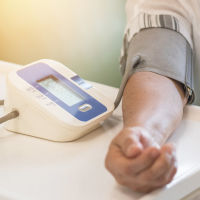Among individuals at increased risk for atrial fibrillation (AF), use of a home-based self-applied electrocardiogram (ECG) patch facilitated AF diagnosis, according to a new study published in JAMA. Further research is needed regarding clinical implications of this finding, study authors note.
For approximately 20 percent of individuals who experience a stroke due to AF (an irregular and often rapid heart rate), the occurrence of AF was not diagnosed until the time of their stroke or shortly afterwards. Improved methods of early AF identification could allow for the initiation of appropriate therapies to prevent stroke and other adverse health outcomes associated with atrial fibrillation.
To determine the effect of a wearable ECG patch in detecting AF and the clinical consequences associated with such a detection strategy, the authors conducted a direct-to-participant randomised clinical trial and prospective matched observational cohort study among members of a large national health plan. Recruitment began 17 November 2015, and was completed on 4 October 2016, and one-year claims-based follow-up concluded in January 2018.
In the randomised trial that included 2,659 participants at increased risk of AF, immediate monitoring with a home-based, self-applied ECG sensor patch resulted in a higher rate of AF diagnosis after four months compared with delayed monitoring (3.9 percent vs. 0.9 percent).
The observational study comprised 5,214 participants, including 1,738 actively monitored individuals from the randomised trial and 3,476 matched controls. Study results show that monitored individuals had higher rates of AF diagnosis, greater initiation of blood thinners, but also increased healthcare resource use at one year compared with non-monitored controls.
Source: JAMA
Image Credit: Pixabay
References:
Steinhubl SR, Waalen J, Topol EJ et al. (2018) Effect of a Home-Based Wearable Continuous ECG Monitoring Patch on Detection of Undiagnosed Atrial Fibrillation. The mSToPS Randomized Clinical Trial. JAMA; 320(2):146-155. doi:10.1001/jama.2018.8102
Latest Articles
atrial fibrillation, AF, Home-based wearable ECG
Home-based wearable ECG monitoring patch improves AF diagnosis



























